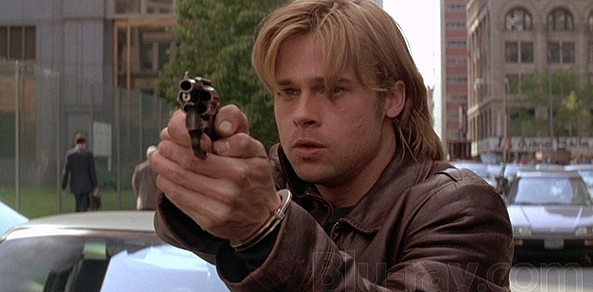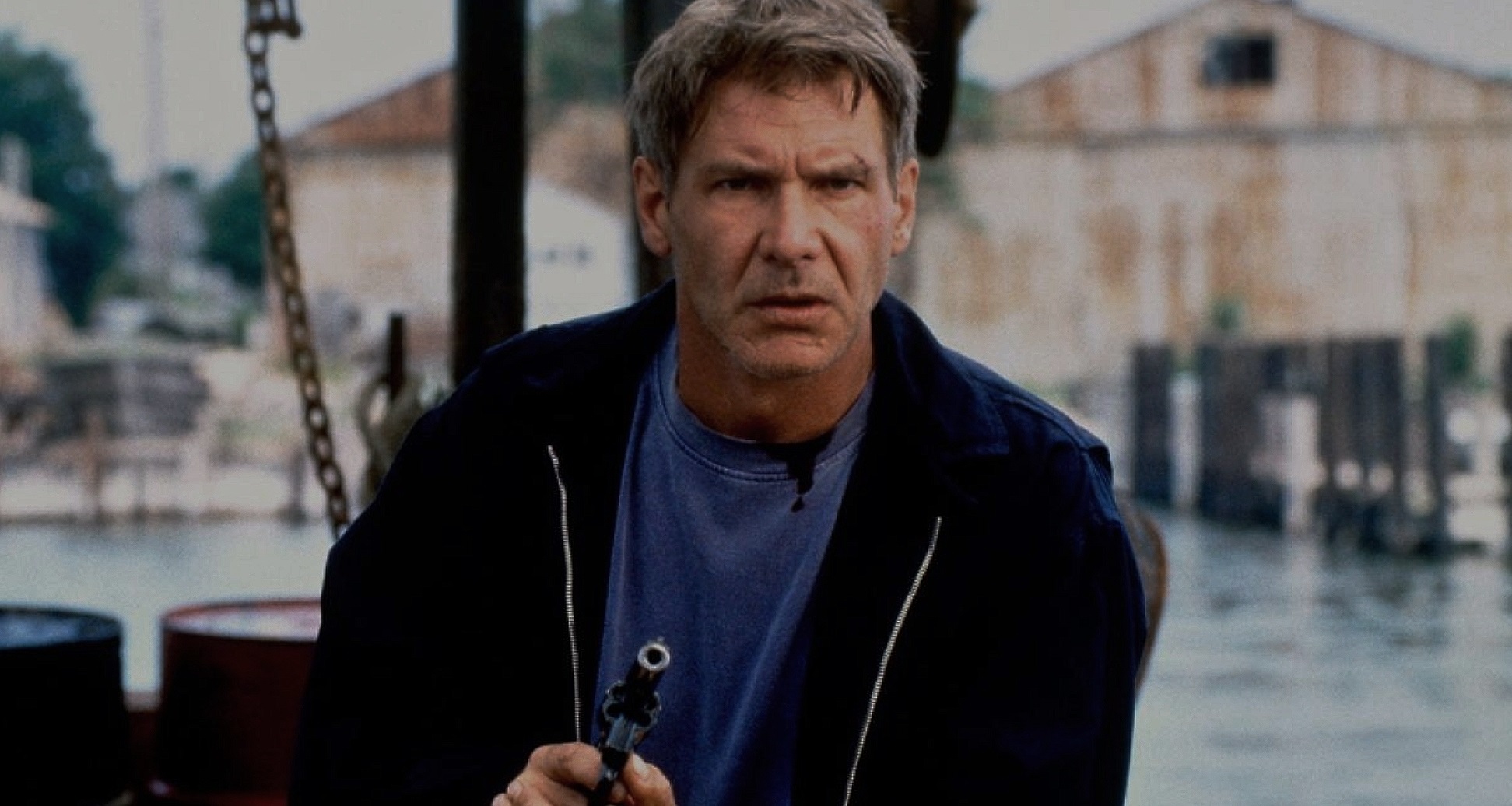Director Alan J. Pakula’s ‘The Devil’s Own’ revolves around an Irish Republican Army gunman, Frankie McGuire, who travels to the United States and ends up staying with a New York police officer, Tom O’Meara. With most of its story centering around the smuggling of anti-aircraft weapons to Northern Ireland, the film also features a strong character-driven drama. Pakula’s final film before his death soon after the release, the action-thriller featured two industry heavyweights, Harrison Ford and Brad Pitt, in lead roles. Upon its release in 1997, it made headlines for its difficult production, controversial subject matter, and later, for a polarized critical reception. The movie’s backdrop, along with its many surrounding controversies, makes the viewers question whether or not its story is based on actual history.
The Devil’s Own Merely Touches Upon the Northern Ireland Conflict
While ‘The Devil’s Own’ is not a direct recount of specific real-life events, it does draw inspiration from real-life political conflicts and the broader historical context in Northern Ireland, referred to as the Troubles. The screenplay, collaboratively written by David Aaron Cohen, Vincent Patrick, and Kevin Jarre, also went through some revisions by Robert Mark Kamen. The screenplay manages to portray the conflicting worlds of an IRA operative and a law-abiding cop, their polar opposite moralities, and their respective definitions of loyalty and justice in a commendable manner.

However, it doesn’t deliver context in its historical setting, opting not to delve more into politics and war and relying on fictional interpretations. The characters and their experiences, particularly the portrayal of IRA activities — acting upon the hunger for vengeance — reflect the patriotism of real martyrs of the resistance army albeit fictionalized for dramatic effect. Brad Pitt’s character, Frankie McGuire, embodies the emotional and political motivations of an IRA member; the plot does offer a more personal tragedy to fuel those emotions.
While preparing for his character in West Belfast, Pitt was reportedly attacked by some locals who mistook him for a protestant for his attire and accent. These events further correspond to Frankie’s life while also justifying the actor’s portrayal to a significant extent. Harrison Ford’s Sergeant Tom O’Meara represents the moral struggle of an American cop caught in an ethical dilemma. Tom frequently tries to resolve issues he finds himself amidst, evident by his false testimony to save Eddie from the accusations of shooting a petty thief.
Tom’s heroic methods to prevent handing Frankie over to the Special Air Service agents of the British army seem to echo the role of the US amidst the conflict, which acted as an intermediary between Britain and Ireland and played a crucial role in ensuring peace and the eventual ceasefire. Tom’s role in successfully denying the IRA the chance to obtain Stinger missiles also has some truth backing it up. Despite multiple efforts to acquire the deadly anti-aircraft missiles from the American black market during the 1980s, the IRA could never get their hands on the weapon.
A similar outing, as observed in the film, became public in 1990, when reportedly four IRA members were arrested in Miami for attempting to purchase the missiles. Conceived during the Troubles (1960s-1998), the project’s true origins date back to the late 1980s, starting as a pitch by producers Lawrence Gordon and Robert F. Colesberry. The first draft, written by Jarre, was met with enthusiasm for its supposedly grittier tone and espionage-like vision. Though Pitt was the first choice for Frankie, the actor’s then-low profile and political tensions stalled progress until the declaration of the ceasefire in the country. Renewed interest in the project arose following Pitt’s string of successful films in the mid-90s, such as ‘Legends of the Fall,’ ‘Interview with the Vampire,’ ‘Seven,’ and ‘12 Monkeys,’ leading to his retention.
Many criticized ‘The Devil’s Own’ stating it oversimplified the gravity of IRA’s complex political motivations and the historical context of the Troubles. Even the character of Frankie McGuire, while rooted in realistic IRA activities, was observed as a dramatized antagonist rather than a direct depiction of any specific individual. Despite lacking the nuanced accuracy many had anticipated it to portray, the film, nevertheless, manages to retain the ambitiously patriotic mindset of the IRA nationalists.
Read More: Best Action Movies of the 1990s


You must be logged in to post a comment.